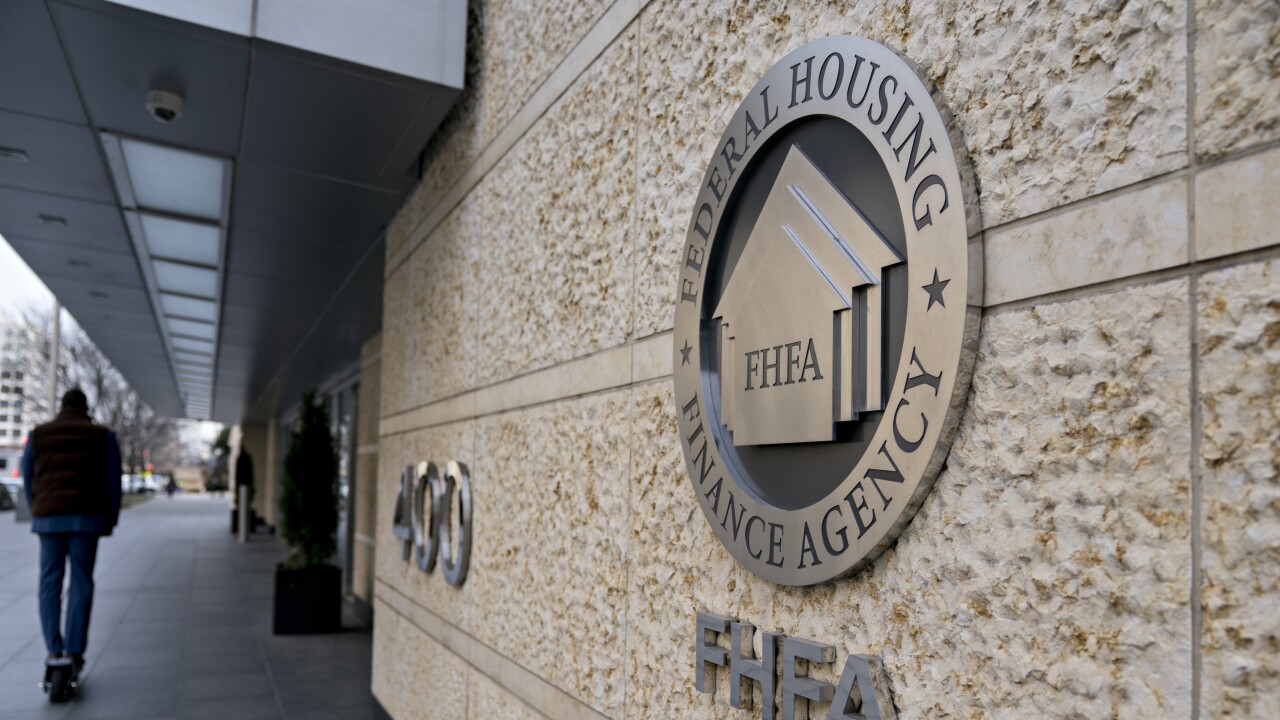Regulation and compliance
Regulation and compliance
-
Regulators are alarmed about banks' rising exposure to high-risk corporate credits and want more data on how they would perform in a recession.
February 11 -
The unsuccessful scheme has become the focus of a legal battle involving two former Federal Home Loan Bank of San Francisco employees against that government-sponsored enterprise, which fired them in 2018.
February 11 -
Members of the House Financial Services Committee chastised Kathy Kraninger for not supervising student loan servicers and failing to examine firms for compliance with the Military Lending Act.
February 6 -
Think Finance, which had teamed with tribal lenders to offer high interest installment loans, could no longer make or collect on loans in states that have caps on interest rates, under terms of a proposed settlement with the Consumer Financial Protection Bureau.
February 6 -
In a letter to CFPB Director Kathy Kraninger, the Democratic senators argue that task force members cannot be trusted to protect consumers because they have represented payday lenders or Wall Street banks, or worked at law firms that did so.
February 5 -
With policymakers focused on ending Fannie Mae and Freddie Mac’s conservatorship, their regulator is reorganizing key units and adding staff to position itself for the long term.
February 3 -
The two agencies said they will exchange student loan complaint data after their information-sharing efforts had been in limbo for over two years.
February 3 -
The regulator said the investment bank and financial services company will help in the process of strengthening Fannie Mae and Freddie Mac’s capital standing for their eventual exit from conservatorship.
February 3 -
Now that the Consumer Financial Protection Bureau says it will scrap an unpopular standard for so-called qualified mortgages, the big question is what will take its place.
February 2 -
The agency has named Thomas G. Ward as the bureau’s assistant director for enforcement. House Democrats have questioned Ward's role as a political appointee in the Trump administration.
January 30 -
In another rollback of the bank trading ban, the federal agencies unveiled a plan to allow financial institutions to invest in multiple companies through certain fund structures.
January 30 -
In the past, the agency cited the legal term in enforcement actions without stating what it meant, but Director Kathy Kraninger has sought to give the industry clearer guidance.
January 24 -
Democratic lawmakers, state attorneys general and others filed briefs with the Supreme Court rebutting claims that the agency’s leadership structure is unconstitutional.
January 24 -
Regulators already finalized a rollback of the proprietary trading ban section of the rule but signaled then that their overhaul was not finished.
January 23 -
The agency is sending a strong message that it won’t rush to end an exemption for Fannie Mae and Freddie Mac while also signaling longer-term changes that will affect all lenders.
January 21 -
Director Kathy Kraninger has told lawmakers that the agency will delay the expiration of the so-called QM patch, now set for January 2021.
January 21 -
In another sign of state officials trying to outdo the Consumer Financial Protection Bureau, governors in California and New York want greater authority to license and oversee the debt collection industry.
January 15 -
The Supreme Court appointed Paul Clement to represent the agency after the bureau’s current director questioned its constitutionality.
January 15 -
In a letter to the agency's inspector general, the 15 lawmakers pointed to specific cases where they said the bureau departed from legal standards in deciding not to require restitution.
January 14 -
Despite changes by the Federal Housing Administration, bankers remain reluctant to join the program for fear of legal liability. But that could change if it revamps servicing processes, experts say.
January 13


















